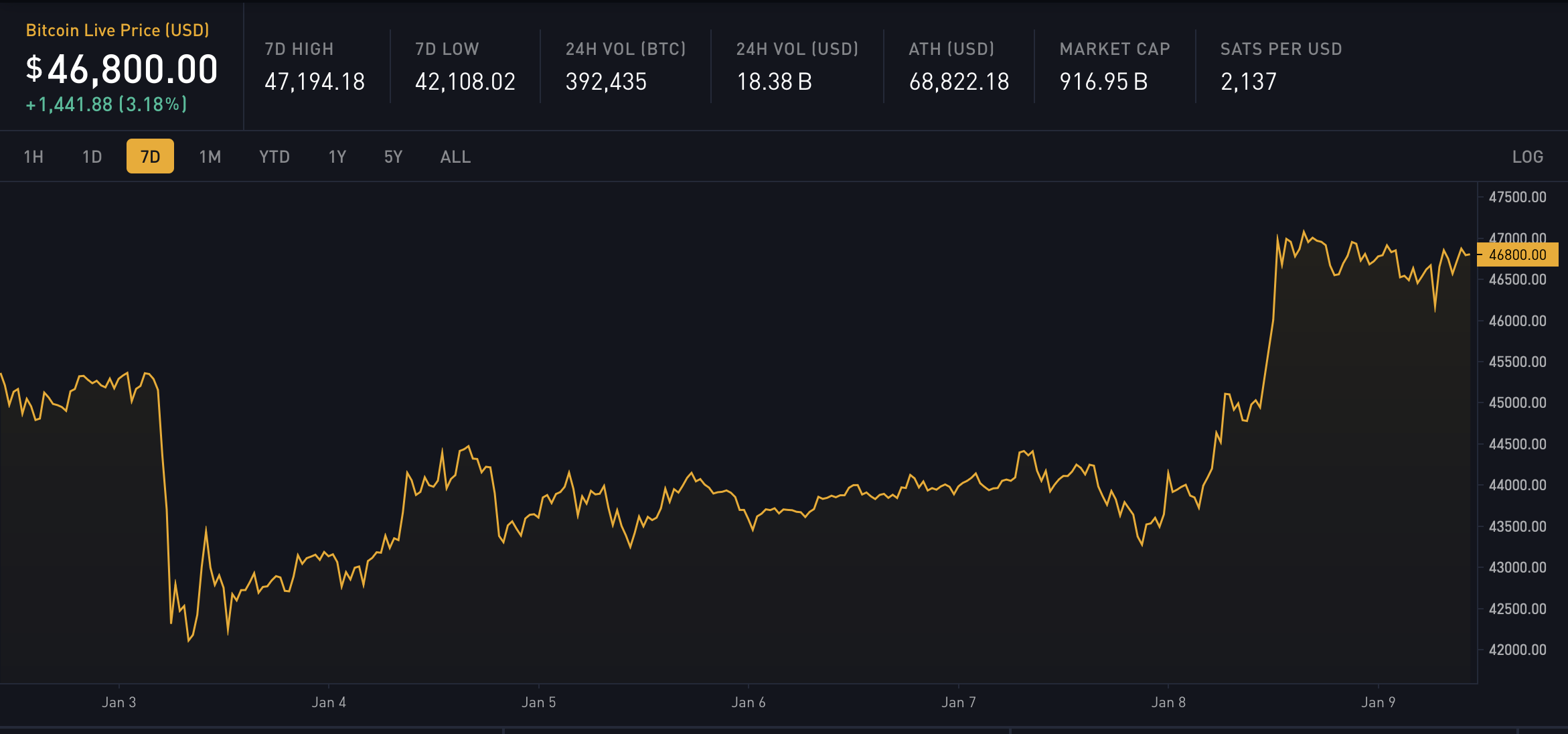

The bitcoin community is currently on high alert, anticipating a decision from the U.S. Securities and Exchange Commission (SEC) regarding the approval or potential rejection of spot Bitcoin ETFs (exchange-traded funds).
The bitcoin community is currently on high alert, anticipating a decision from the U.S. Securities and Exchange Commission (SEC) regarding the approval or potential rejection of spot Bitcoin ETFs (exchange-traded funds). With the sentiment leaning towards an expected approval, it is crucial to understand the potential implications this decision could have on the cryptocurrency landscape.
ETFs are investment funds traded on stock exchanges, much like stocks. A spot Bitcoin ETF would allow investors to gain exposure to the actual price of Bitcoin without owning the cryptocurrency directly. The SEC's approval process involves a thorough review of filings from the exchanges that list these ETFs. Presently, there is positive momentum in the process, with active engagement between the SEC and ETF issuers, as well as up-to-date filings from the exchanges.
The SEC could either approve multiple ETFs at once or select a few for initial approval. The precise outcome remains uncertain, but the positive dialogue between the SEC and issuers is a promising sign. Once approved, the ETFs' S-1 registration statements must also be made effective before they can be listed and begin trading.
The approval of spot Bitcoin ETFs is expected to be bullish for Bitcoin's price, as it would introduce a new class of investors to the market. However, the impact on Bitcoin's price is challenging to predict and will depend on the amount of capital flowing into the ETFs. Even a successful ETF launch could only represent a small percentage of Bitcoin's current market cap, which may limit the extent of any price inflation.

The introduction of spot Bitcoin ETFs is likely to attract additional investors, particularly those who prefer not to hold Bitcoin directly. Competition among ETF providers could lead to varied expense ratios and fees, which may converge over time due to market forces. The management of these fees will be crucial in determining the returns for investors.
The approval of Bitcoin ETFs could have varying effects on different market participants. Some financial institutions may remain on the sidelines, adhering to their core business models, while others that are more innovative may embrace the new product offerings. Companies like Coinbase and Robinhood might benefit indirectly as the ETFs could increase overall demand for Bitcoin. Additionally, traditional exchanges may also see growth opportunities as the need for hedging and derivatives trading expands with the entry of larger institutional participants.
The potential SEC approval of spot Bitcoin ETFs stands as a significant milestone for the cryptocurrency industry. It could lead to broader adoption of Bitcoin by traditional investors and a subsequent increase in demand. However, the actual impact on Bitcoin's price and the fees associated with these ETFs remain to be seen. The decision's ripple effects will undoubtedly influence the strategies and offerings of exchanges, asset managers, and other financial services providers. As the crypto community awaits the SEC's decision, the market remains in a state of anticipation for what could be a transformative development in the crypto asset space.